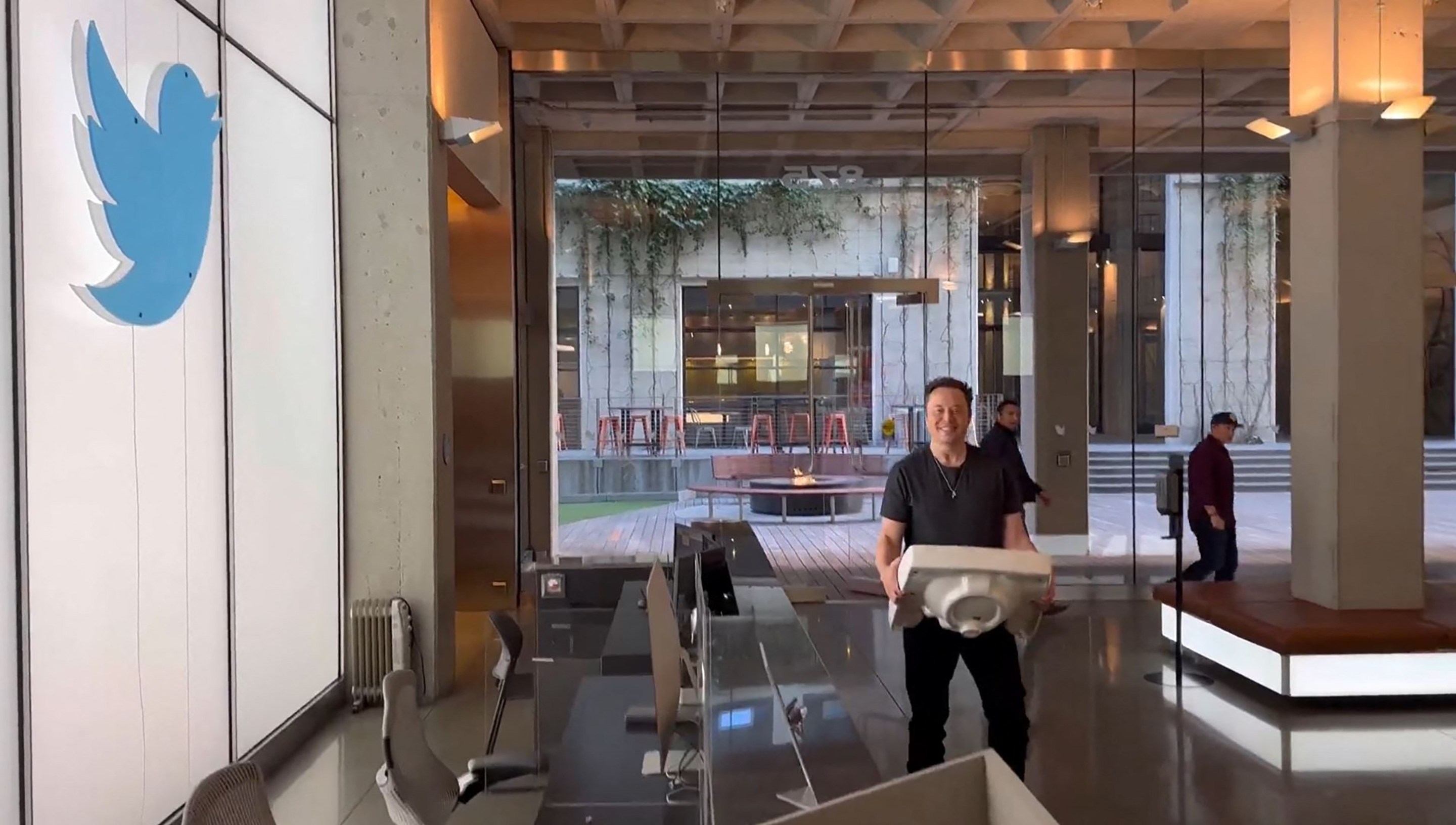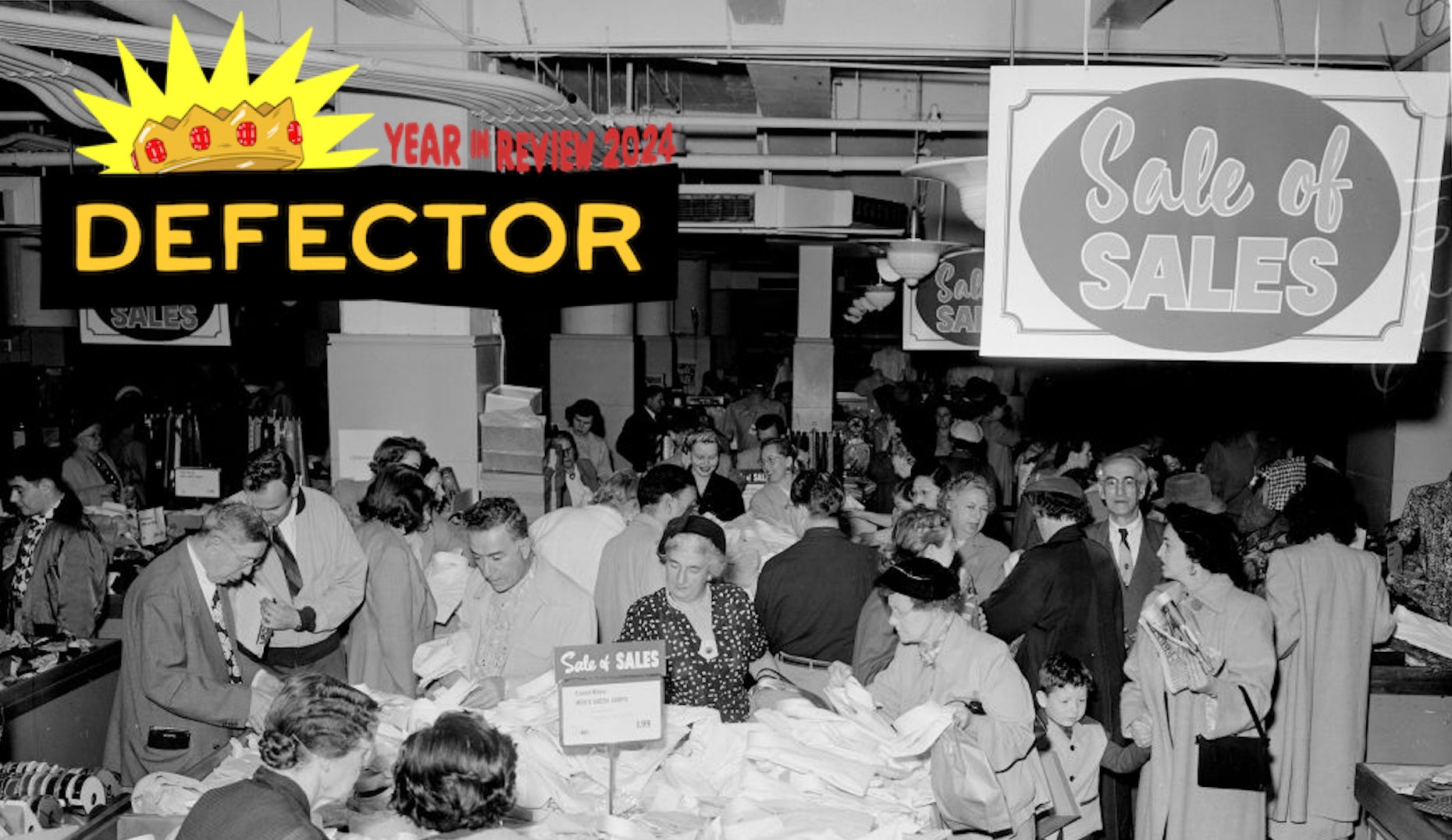Shortly before the World Series began, The Atlantic's Derek Thompson tried to figure out why he didn't care about baseball anymore. Many writers have taken this question on, and yet the inquiry has produced strikingly few good answers. There's nothing revelatory about finding that things you cared about in one stage of your life matter less to you in another; there's nothing inherently significant to it, either. There comes a time in nearly every person's life when they find that they just don't enjoy playing Operation as much as they used to.
(There are other people whose passion for a thing never diminishes, and whose personalities are forced to grow into strange gnarled shapes around that devotion. Some of those people will find as they get older that they are in fact profoundly angry that not enough other people talk about how fun and actually important, and even mythic and poetic, the game of Operation is, and who would like to live their lives inside the universe in which Operation and what its box calls its "classic ailments" unfolds. This is why our popular culture is how it is.)
The answer that Thompson discovers is not an unreasonable one. He identifies the fetish for optimization and efficiency that has overtaken baseball during the last two decades as a destructive force that has both flattened the aesthetic experience of the game and squeezed some essential unpredictability from it. In the global sense, this is true. With the exception of the MLB organizations that operate as ad hoc men's bible study groups or buckraking potemkin franchises or gilded fidget spinners for mediocre local tyrants and their dipshit kids, most big-league teams operate off the same set of best practices, and so wind up doing very similar things. If you like baseball, you might not mind this; Thompson's complaint that the sport is increasingly dependent on homers and strikeouts would naturally bother you less if you thought those things were cool. But a sufficiently optimized sport will necessarily deliver dispiriting new frontiers; the young pitchers that the Astros rode to a World Series win, for instance, were disproportionately international prospects that the team signed a little later and much cheaper than their erstwhile peers. The pitchers are cool, but this is not really that inspiring.
But Thompson's bigger gripe was that baseball simply feels off, and that all that calculation and grim managerial cynicism has shown up downstream through a game that feels to him calculated, cynical, and managed into entropy. This seems like a more individual complaint; if you weren't delighted by the Phillies' implausible postseason and Bryce Harper's supernova turn, you might just not like baseball anymore. But also you can appreciate, say, Cristian Javier's incredible exploding fastball even if you are bored by the near-universal fastballs-up/sliders-down approach and appalled by the fact that the Astros signed Javier for $10,000 out of the Dominican Republic because other teams thought he was too old, at 17, to qualify as a meaningful prospect. You can be awestruck at what the Astros have built and their seamless transition from one dynastic period into another, and still find the specifics of how they've done it fully repellent.
Or you could decide that all or any of what sucks about that—the blank Fordism of player development, a ghoulish market in international players that could charitably be described as "trafficking-adjacent," whatever—is simply too much for you, and leave it. People make choices like this every day without knowing or noticing that they're making them; to move through the world at this moment requires stepping over some very wide and very fragrant trails of slime. If you are enjoying how much Cristian Javier's fastball absolutely rocks, you will naturally be inclined to think less about the chain of variously abhorrent business practices that worked to give him that fastball and put him on that mound. You'll be busy watching baseball, and there are many worse things you could watch instead. Still, even the fun stuff arrives trailing the stink of what made it.
I do not need to tell you that baseball isn't the only place where things that might be transcendent are caught in some boss's long shadow, and stunted by executive cynicism or cornball vanity or both. It is not just a feeling but a fact that this moment is increasingly governed by the fatuity of the richest and most powerful people in the culture, and warped everywhere to reflect and serve their antic relentlessness and idle sadism and zealously anhedonic overall mindset. These powerful people are boring and smug and greedy, but also so uninterested in anything but their dorky feuds and faddish self-flattering worldview that they mostly tend to just reproduce all that. Because these people have bought so much, not just like "politics" and "the news media" but things that people actually enjoy and use all the time, the consequences of that small-mindedness rush downhill daily.
For all the grandiose talk about The Light Of Consciousness and The Future Of Humanity that has come out of Silicon Valley during its ascent, what it has delivered has mostly been spectacularly useless, lifeless, and anti-human. In this sense, it reflects its owners perfectly. The same people lend each other money, back and forth, in re-skinned pursuit of what these people always want done for them—to be served by strangers, promptly; to get over on everyone else and each other; to get richer even as they sleep. (There is also the effort, which is not new among rich dullards, to create an ideological framework that explains why their dippy whims are not only just, but vital to human progress. This also has the residual effect of creating some demeaning jobs, in this case for servile house intellectuals and not TaskRabbits.)
As in baseball, there are systems and structures in place that make all this feel permanent. A culture and politics so bent out of shape by the worship of wealth will naturally serve the rich and powerful much better than it will serve anyone or anything else. The pressure of that class's comfort, the figurative weight of them lazing around atop everything, increasingly bears down on everyone, everywhere. Their amusements crowd out anything else, their preferences are reflected blindingly and echoed deafeningly; everyone is more or less left to nod along and either laugh at their jokes or not.
This is not really good for anyone. The masses groan and struggle but mostly just deal with it; the men on top soften and become weirder in the absence of consequence, or pushback, or even modest friction. It is absolutely meaningful that Elon Musk is a stupendously wack human being. He's mostly a bore, heroically humorless and selfish, a bully and a cretin; for someone often described as a visionary, Musk is toweringly incurious. But because Musk is so rich, his defects are everyone's business. Because Musk now owns Twitter, a ridiculous, ungovernable, justifiably beloved place where people shout at each other and famous people, and share links and make jokes, Musk's personal wackness is now everyone else's problem.
I love when people complain about Twitter … on Twitter 🤣🤣
— Elon Musk (@elonmusk) November 10, 2022
If it is probably useful at some level to be reminded that extremely rich and powerful people are just like this, it is also annoying because Musk's hyperactive corniness is breaking a website that people really like and because his greasy fingerprints are now absolutely everywhere on it. If every cultural product on the market increasingly reflects the fundamental inhumanity and cynicism and brazen lazy defectiveness in the institutional and structural forces that produce it, that is doubly true on Musk's Twitter. Doubly uncanny, too, given that while Musk himself is addicted to the site, he somehow seems to have no idea what it is or does, or how it is used, or by whom, or why. Characteristically, he seems to have little interest in figuring any of that out.
The decision to buy Twitter, which always felt like a clammy gag directed toward his online fan community but became real due to Musk's signature heedlessness, has backfired. The consequences, unsurprisingly, have landed on people Musk disregarded all along. Thousands of employees lost their jobs at Musk's epic whim last week and eighty percent of the company's 5,500 contractors were abruptly terminated over the weekend, and others have quit rather than work under him; the site seems likely to become increasingly unworkable just as a result of that attrition. An already parlous business model is breaking under the pressure of the owner's addled tinkering; Musk has made clear that he planned to continue to violate the Federal Trade Commission consent decree under which Twitter operates, and that the consequences, which could include jail time, would be his employees' problem; the implementation of Musk's glib impulses and gripes instantly made the site chaotic in ways that, inconveniently, proved extremely unpleasant for the site's biggest advertisers.
— bladee city mayor (@eccobrutalism) November 11, 2022
All of which was admittedly pretty funny. But it also hinted at a deeper incoherence and untenability, a sense that Twitter was not so much taking shape under Musk's leadership as taking on his signature defects as its own. If Musk was going to kill Twitter, this was always going to be how—by whimsically, willfully being himself in an exhausting and inscrutable headlong attempt to impress the bummy online influencers he admires and the joyless billionaire pantloads in his social cohort. Musk might indeed kill the site; he has already loaded it with debt and wrecked its capacity to generate revenue and gotten rid of the people that make it functional, and he gets bored very quickly and is fundamentally not committed to anything beyond his own aggrandizement. That doesn't augur well, but things generally do not end that cleanly or decisively, online or anywhere else. They die like everything else.
It's a cycle. People create something, together, that reflects their energy and weird work; that thing becomes compelling as a result, and that makes it valuable, and at some point someone puts a price on it and someone else pays that price. It is at that moment that the thing begins to change. The new owner will almost always decide that what is most interesting about this thing is not the human essence that gave it value, but The Owner Himself, and will act accordingly. People will come back for the valuable stuff until the owner succeeds in crowding it out; when that crowding is done, the owned thing dies. Until then, what's left is just what's valuable—the humanity and brilliance and unpredictability and fun that all that cynical and idiotic and self-serving wealth is always and everywhere busy replacing with itself. There's nothing to do but look for the good stuff until the looking becomes too challenging, or until it's gone.





